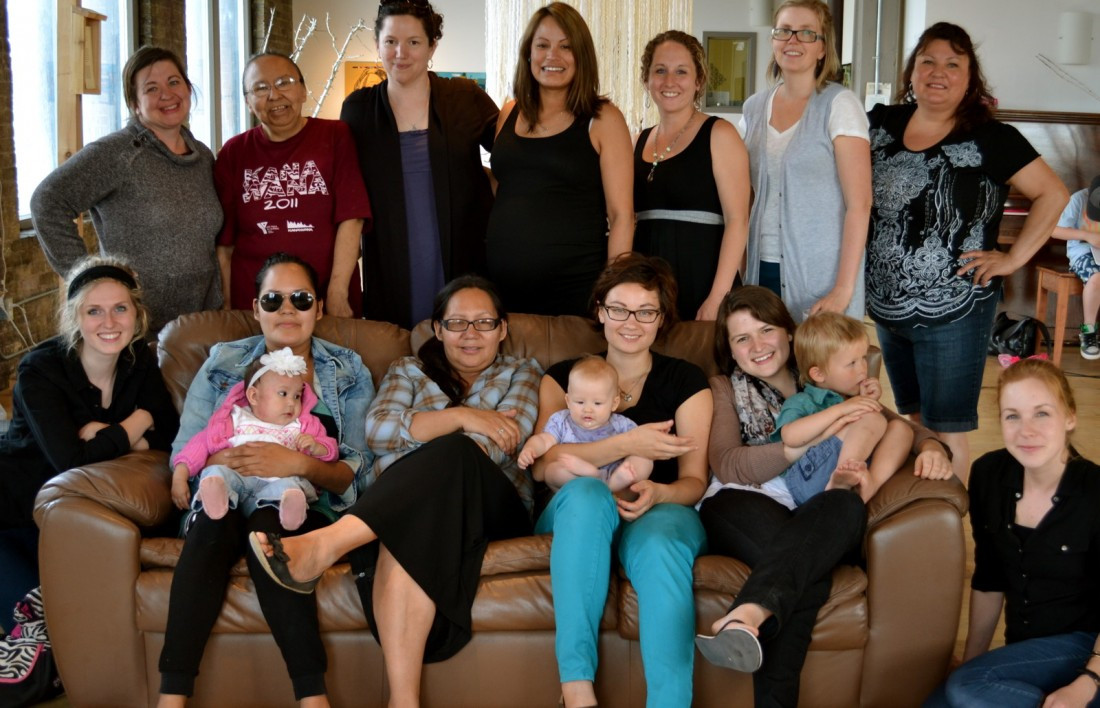Living well together
13 women live out reconciliation
The Truth and Reconciliation Commission recommendations cover many structural changes that need to happen in our government, legal system and churches. We need to amend past ways of relating and work towards a better future.
For those of us not in positions to make these structural changes, how do we begin to reconcile at an individual, neighbour to neighbour level? Myself and 12 other women have been facing this challenge, and we are learning that relationship is the key to moving forward.
For the past 12 weeks I have been participating in a sharing circle with 12 other Indigenous and non-Indigenous women. Our time together culminated in an art show based on our reflections on what it means to Live Well Together.
This project began as a Masters in Family Therapy thesis for Kelly Bernardin-Dvorak. The first circle took place in 2013. Dvorak partnered with Maria Epp, who guided the artistic portion of the project.
The vision was to create space for conversations about reconciliation. Dvorak saw the sharing circle as a medium to do that.
“It grew from my heart to be an active part of reconciliation and the acknowledgement that colonialism is a deeply entrenched way of thinking that needs to be addressed.” Dvorak says.
The success of the initial project led Dvorak to facilitate the second circle early this spring.
Each meeting began with a smudge, a burning of sage to cleanse the mind and clear space to allow sharing in a positive way.
We took turns sharing and passing a yellow brick, which acted as the talking stick. The brick was from a neighbouring factory, which was torn down a couple of years ago, and represents reconciliation.
In the same way that the factory was demolished one brick at a time, taking apart the effects of colonization happens one person at a time.
In a sharing circle each person is a teacher and a student. We talked about everything from our day-to-day struggles and the people that we love, to the things that we dream about. Dvorak explains that the belief is that reconciliation happens when we simply take the time to get to know each other.
I definitely grew as a person through this experience. Sharing my thoughts with a new group of people is intimidating but also extremely rewarding. As I chose to share my own story, I was able to appreciate the acceptance and care that each woman had to offer me.
I felt that I could relate to pieces of each woman’s story. They all had something to teach me. I was deeply inspired by the strength of each person and their courage to share so honestly within the circle and within their art.
For one of my fellow participants, Cheryle Dreaver, her participation in the circle came out of the value she places in healing through connection and creativity.
“I am a believer that sharing in circles is powerful, as we share our experiences and connect our energies together,” Dreaver says. “The women have taught me to honour our honesty, to stand in our truths and to rise with pride. Our experiences, the good and bad, add to our value as sacred women.”
Dreaver would like to see more opportunities like this in Winnipeg.
“My hope is for this work to continue in the community. There is a need for the growth of art and communications, connecting women together to share, create and have an honest discussion on decolonization.”
There will be an Art and Dialogue night on Thursday, June 25, at 7:30 p.m. at Flatlanders Studio (782 Main St, third floor.) This will be a chance to hear from the women who participated in the sharing circle and to view the gallery. Admission is free.







